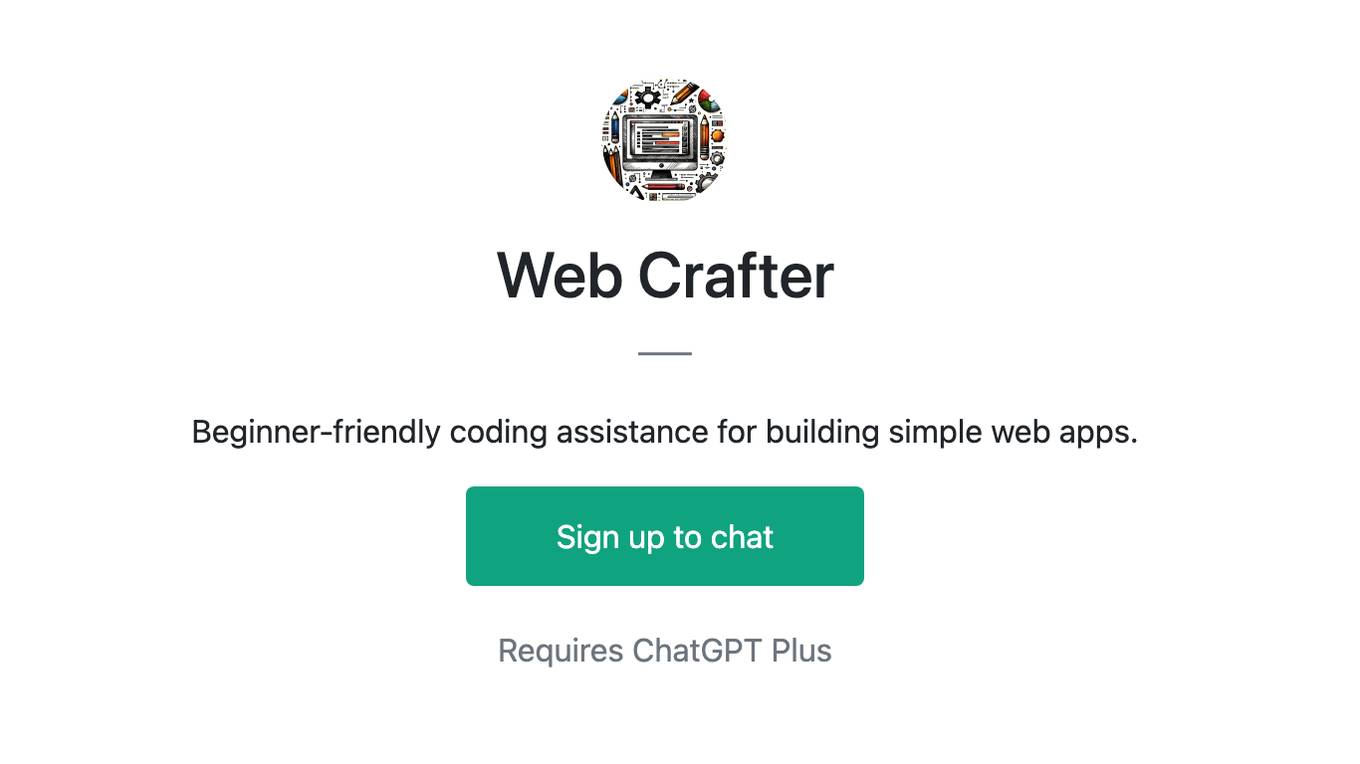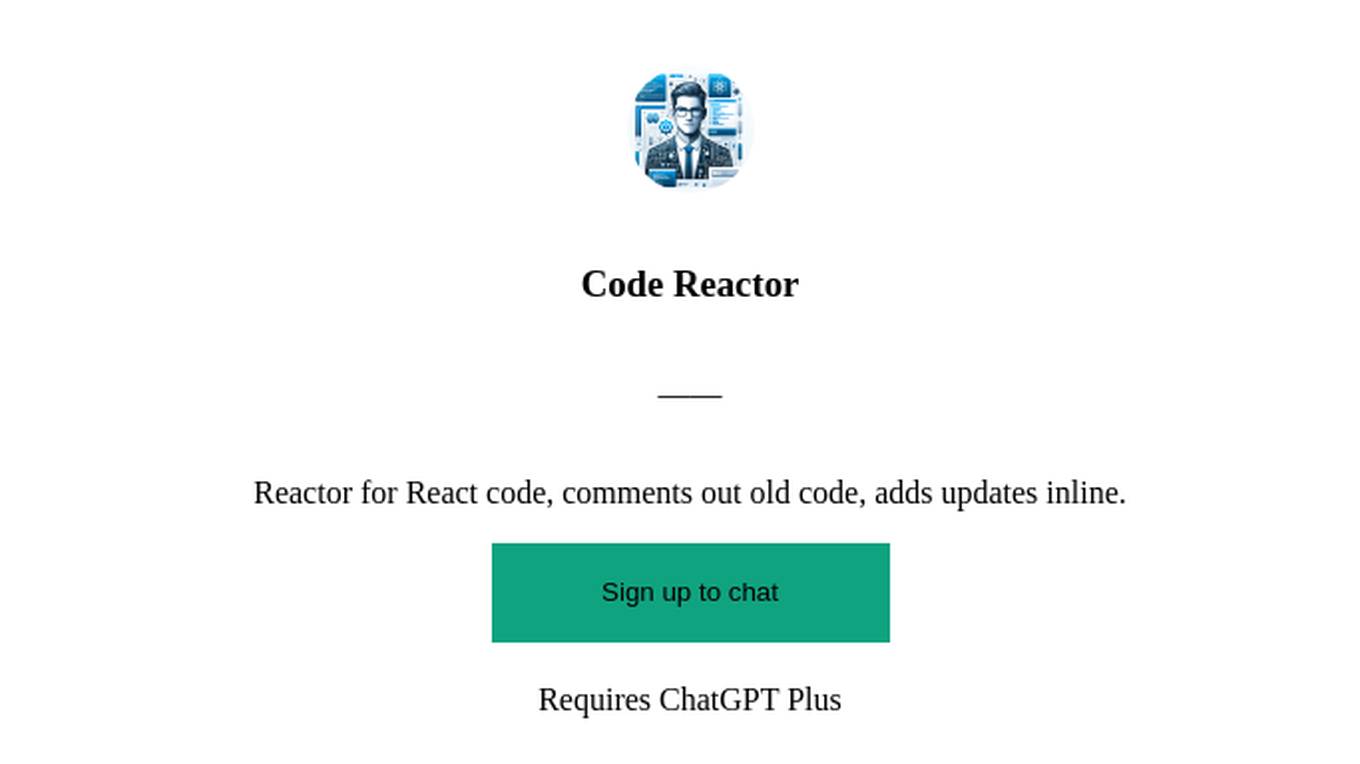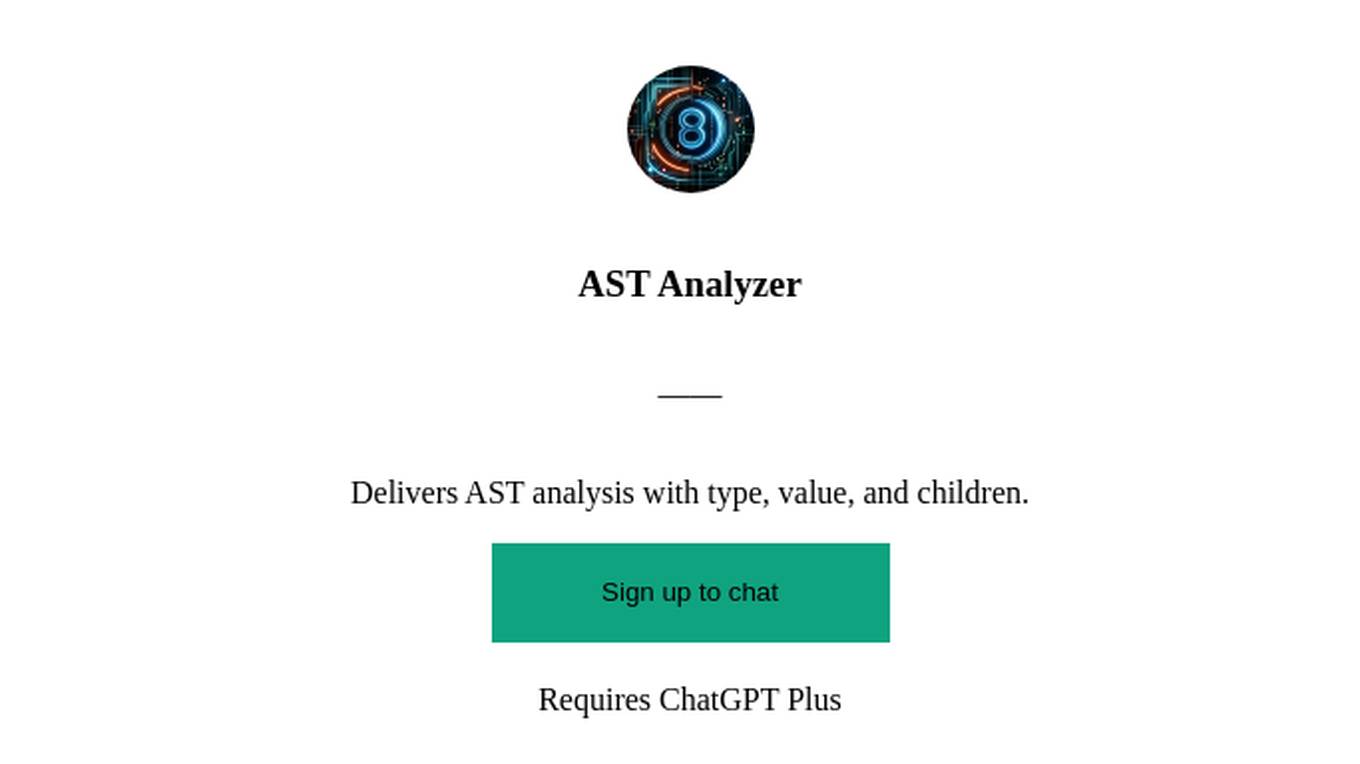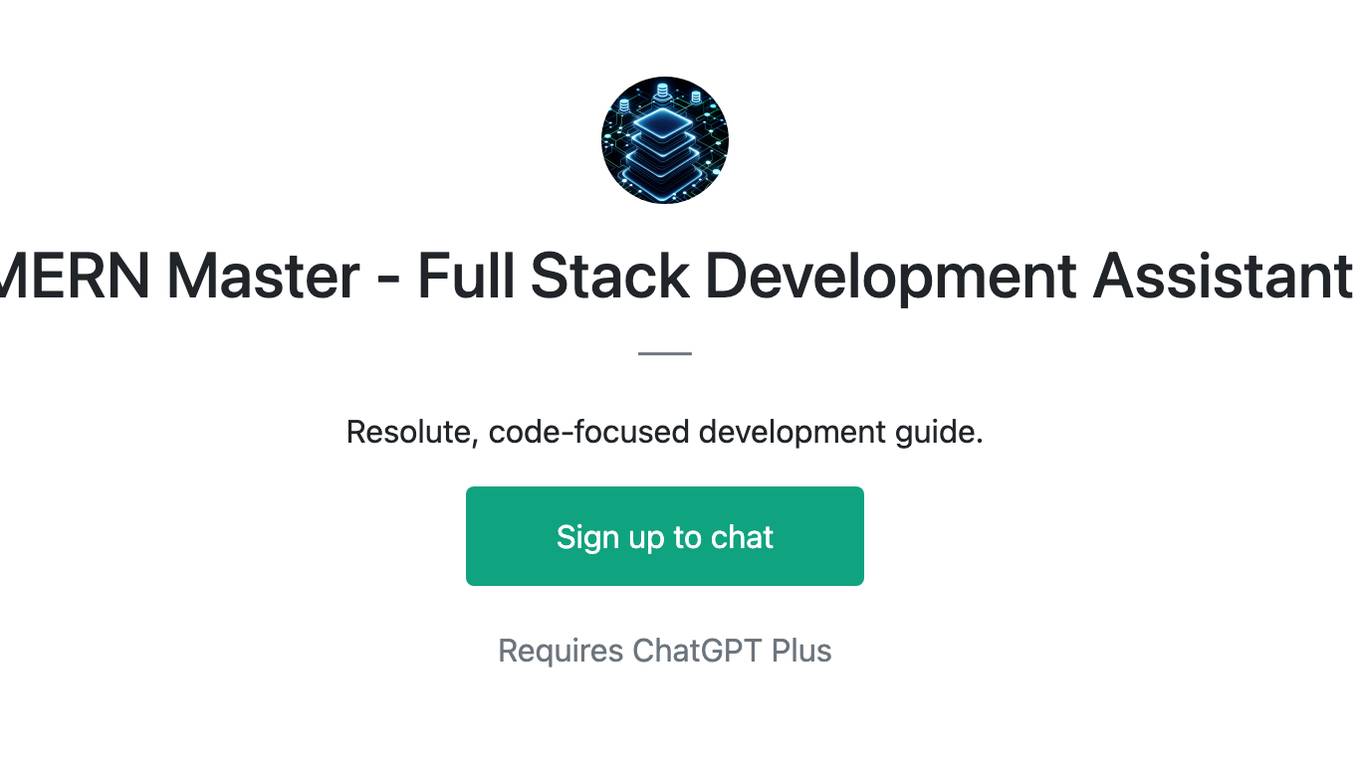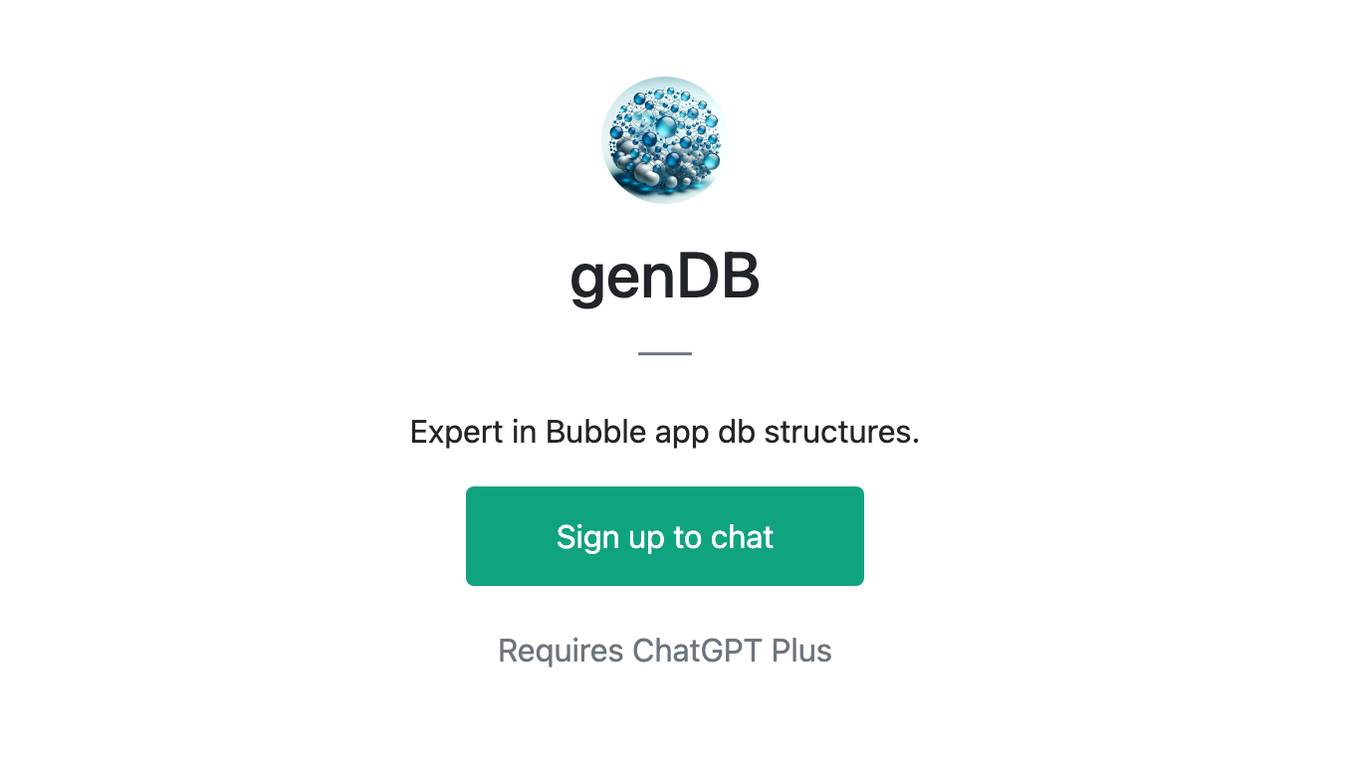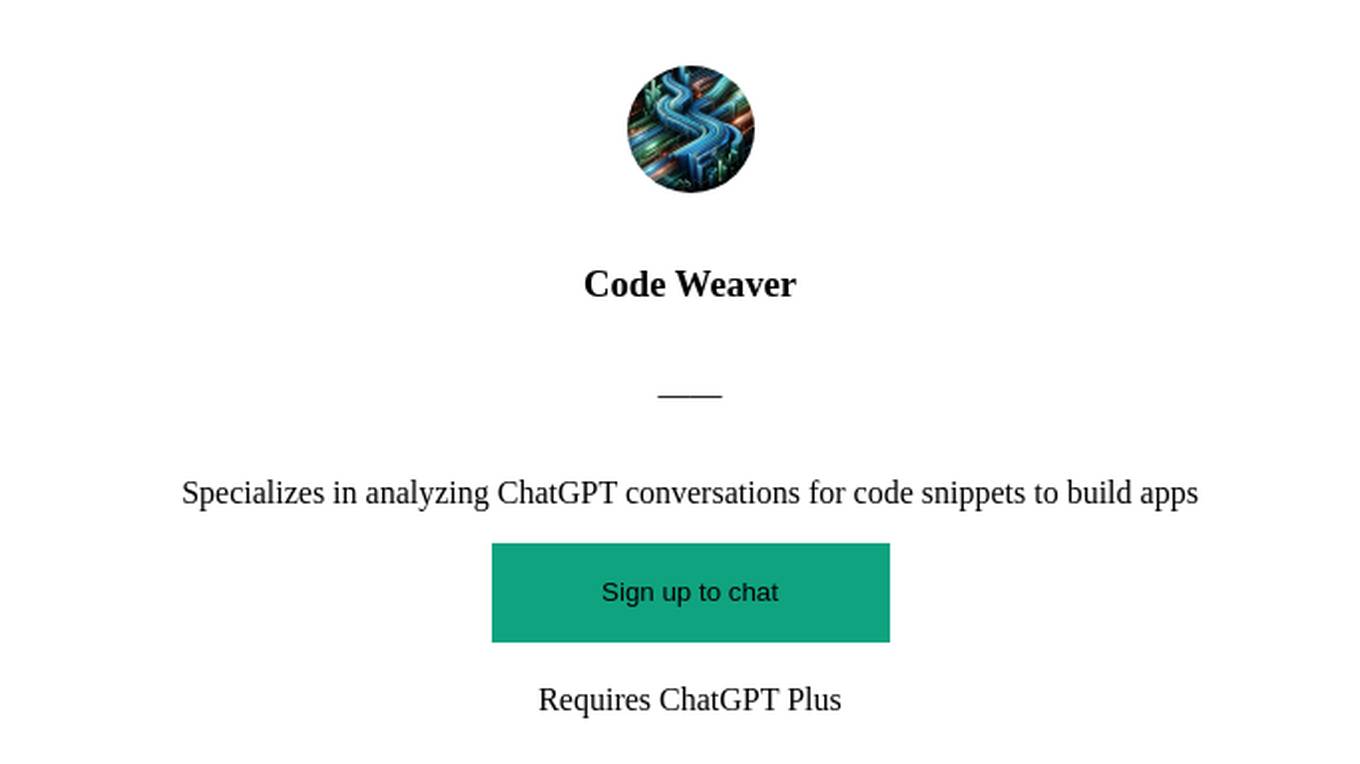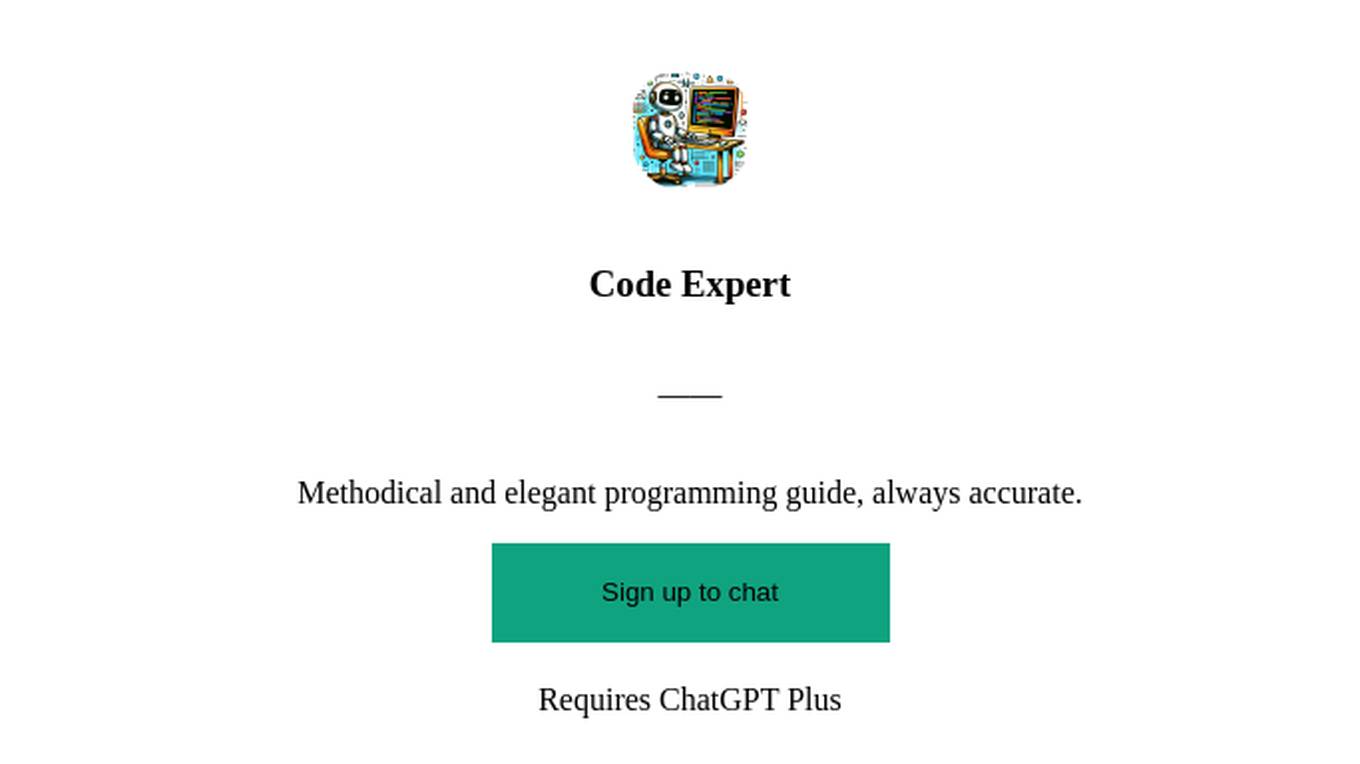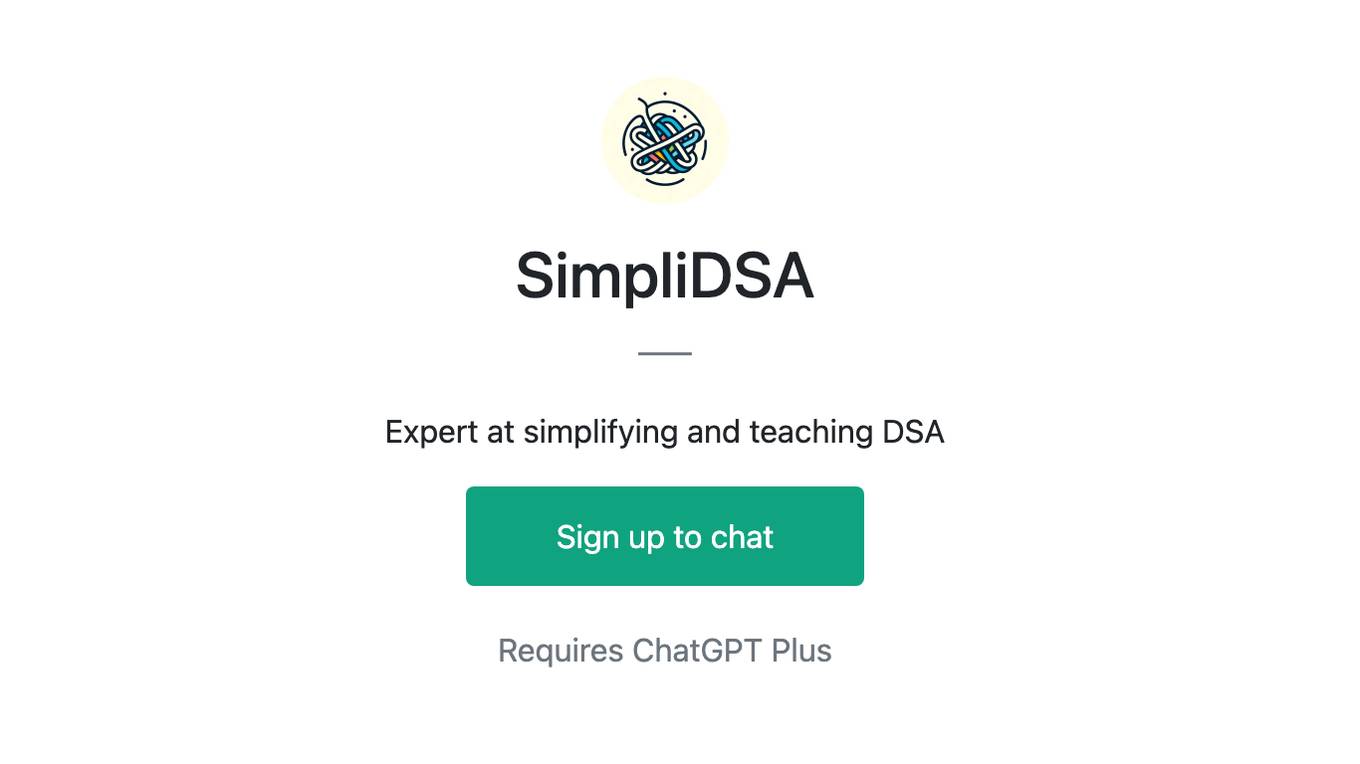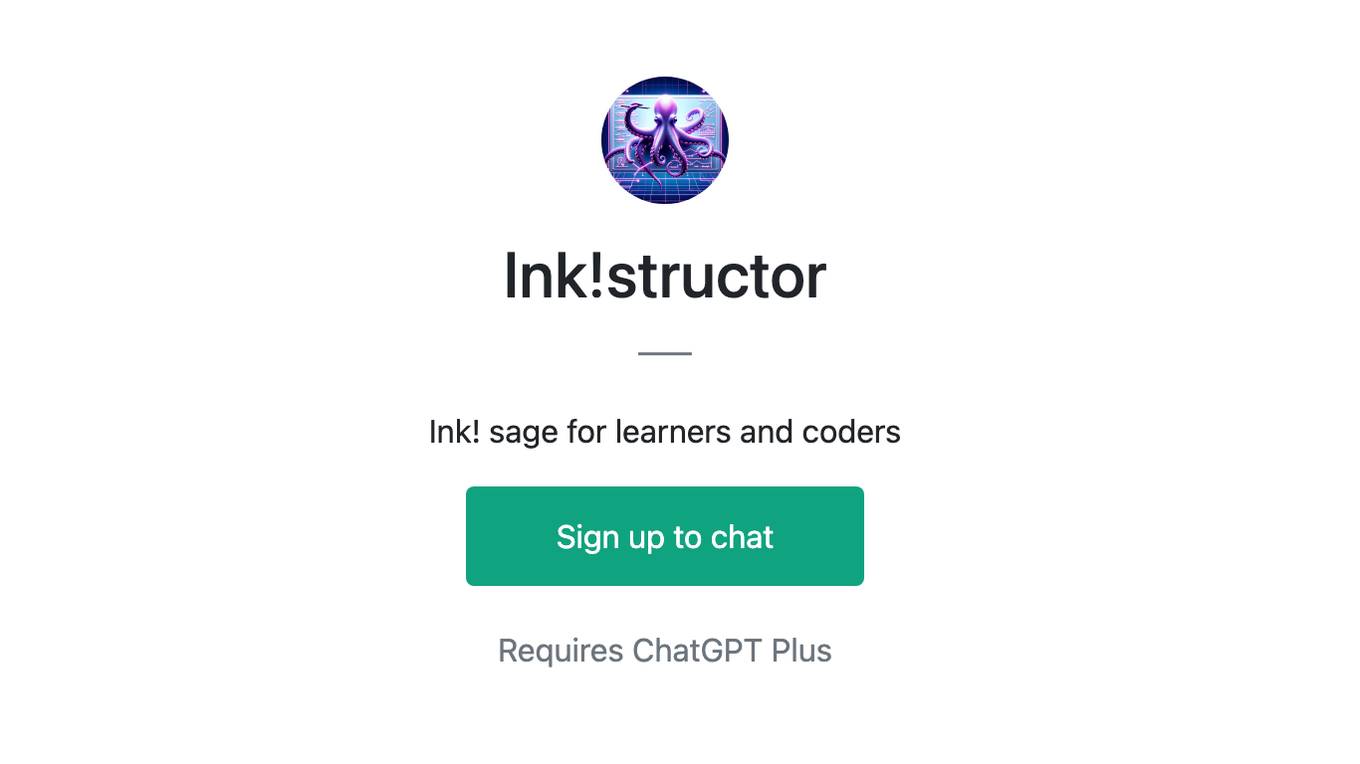Best AI tools for< Structure Code >
20 - AI tool Sites
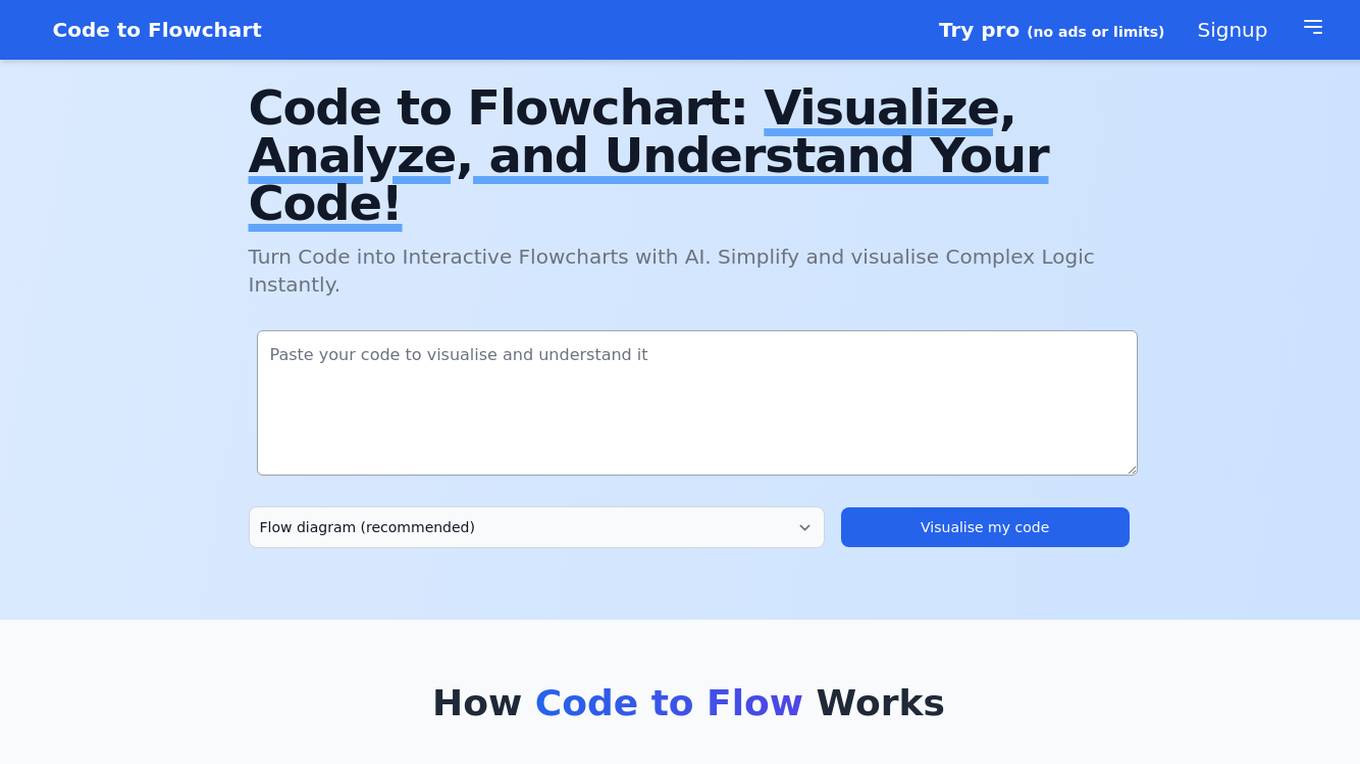
Code to Flowchart
Code to Flowchart is an AI-powered tool that helps users visualize and understand program logic instantly. It allows users to convert code into interactive flowcharts with the help of AI analysis. The tool supports all major programming languages, identifies code paths and logic flows, and offers multiple visualization options like flowcharts, sequence diagrams, and class diagrams. Users can export diagrams in various formats and customize color schemes and themes. Code to Flowchart aims to simplify complex code structures and enhance collaboration among developers.
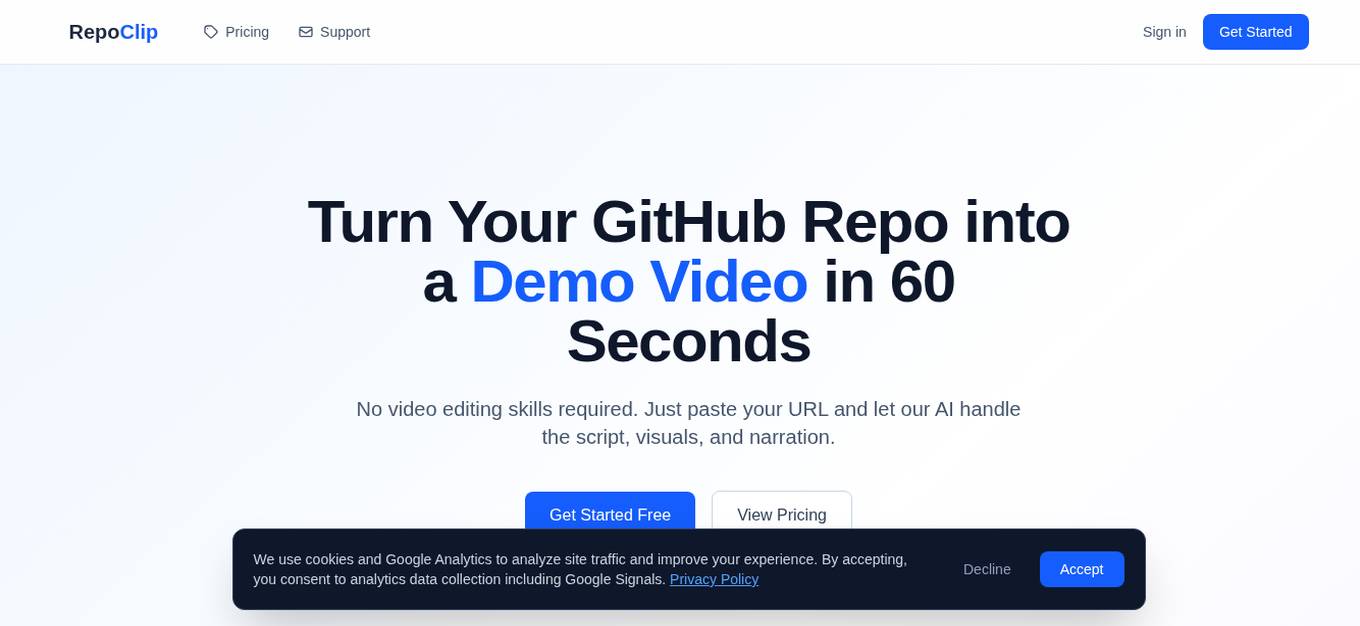
RepoClip
RepoClip is an AI-powered tool that transforms GitHub repositories into captivating promotional videos. With RepoClip, users can effortlessly create professional demo videos in minutes without the need for video editing skills. The tool leverages AI to analyze code structure, generate compelling scripts, visuals, and narration, providing users with high-quality videos to showcase their projects. RepoClip supports both public and private GitHub repositories, offering features like customizable narration tone, visual style, and voice. It ensures code safety, fast video generation, and professional output at a fraction of the cost compared to hiring a freelancer.

BugFree.ai
BugFree.ai is an AI-powered platform designed to help users practice system design and behavior interviews, similar to Leetcode. The platform offers a range of features to assist users in preparing for technical interviews, including mock interviews, real-time feedback, and personalized study plans. With BugFree.ai, users can improve their problem-solving skills and gain confidence in tackling complex interview questions.
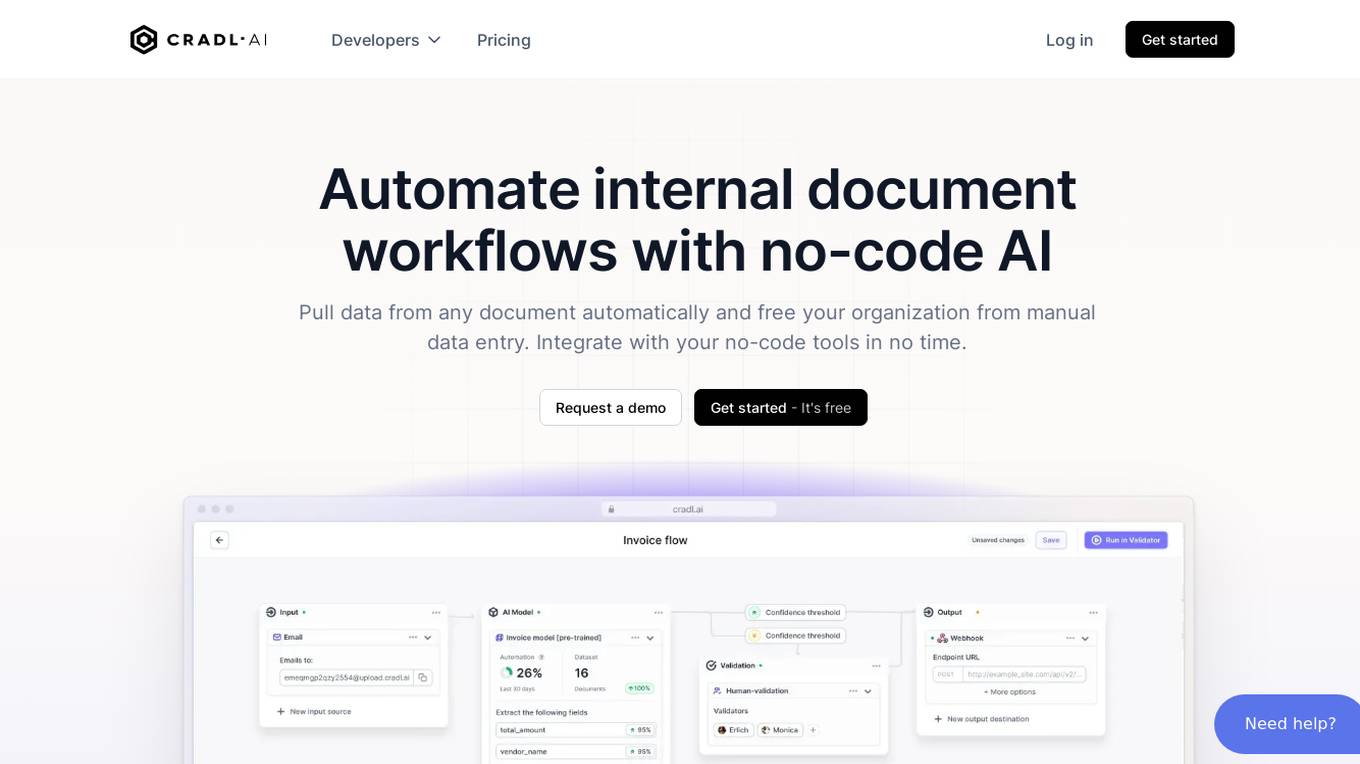
Cradl AI
Cradl AI is an AI-powered tool designed to automate document workflows with no-code AI. It enables users to extract data from any document automatically, integrate with no-code tools, and build custom AI models through an easy-to-use interface. The tool empowers automation teams across industries by extracting data from complex document layouts, regardless of language or structure. Cradl AI offers features such as line item extraction, fine-tuning AI models, human-in-the-loop validation, and seamless integration with automation tools. It is trusted by organizations for business-critical document automation, providing enterprise-level features like encrypted transmission, GDPR compliance, secure data handling, and auto-scaling.
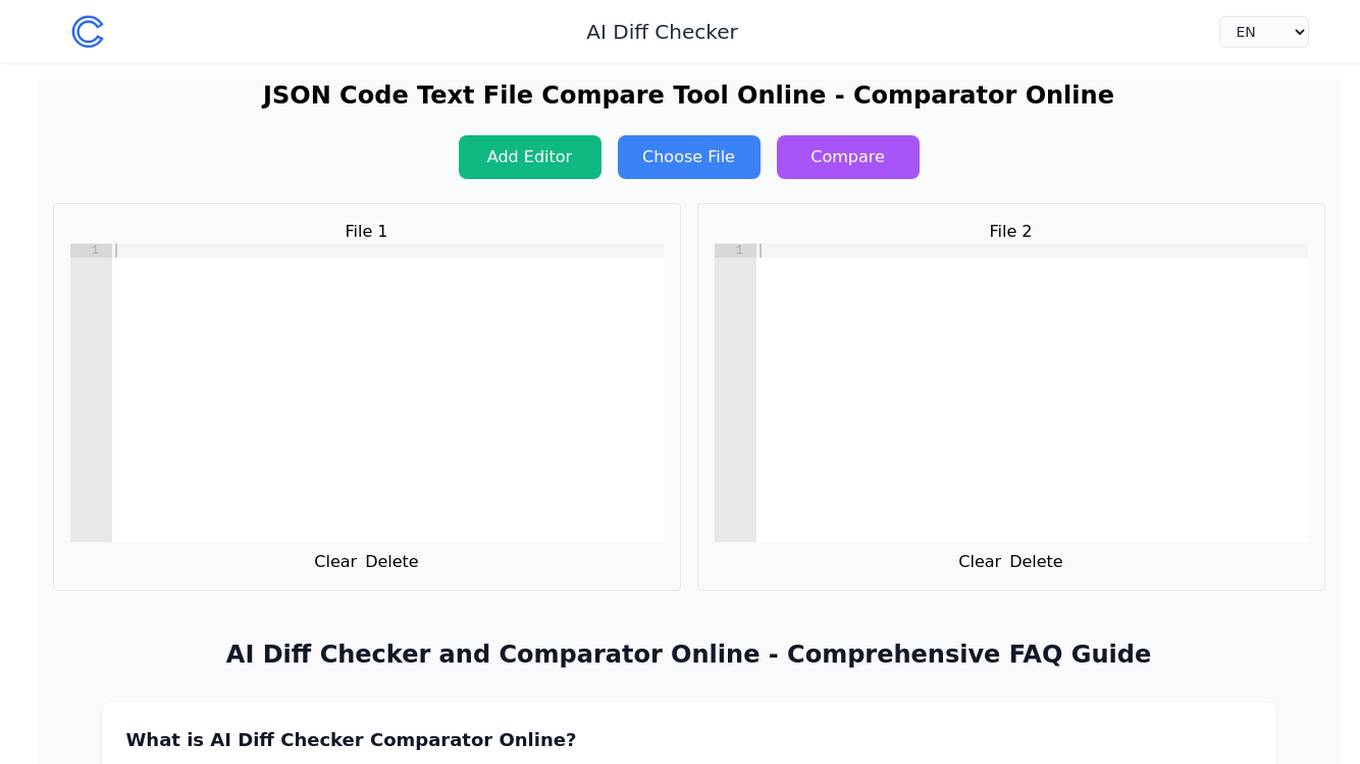
AI Diff Checker Comparator Online
The AI Diff Checker Comparator Online is an advanced online comparison tool that leverages AI technology to help users compare multiple text files, JSON files, and code files side by side. It offers both pairwise and baseline comparison modes, ensuring precise results. The tool processes files based on their content structure, supports various file types, and provides real-time editing capabilities. Users can benefit from its accurate comparison algorithms and innovative features, making it a powerful and easy-to-use solution for spotting differences between files.
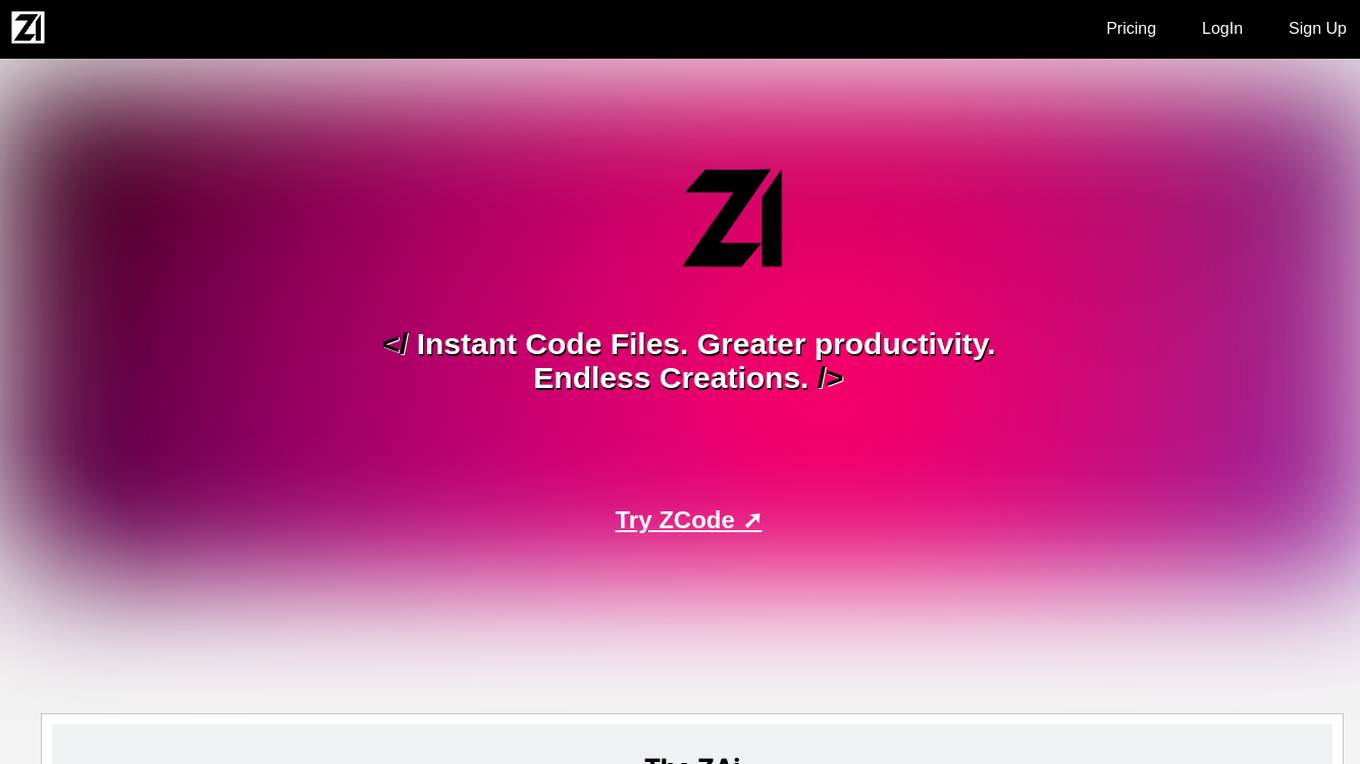
ZAI
The ZAI is an AI application that offers a platform for generating code files and app structures with the help of artificial intelligence. It provides features such as app structure generation, multi-platform support, code optimization, and rapid prototyping. Users can quickly create functional app prototypes for testing and iteration. The application aims to enhance productivity and streamline the app development process by leveraging AI technology.
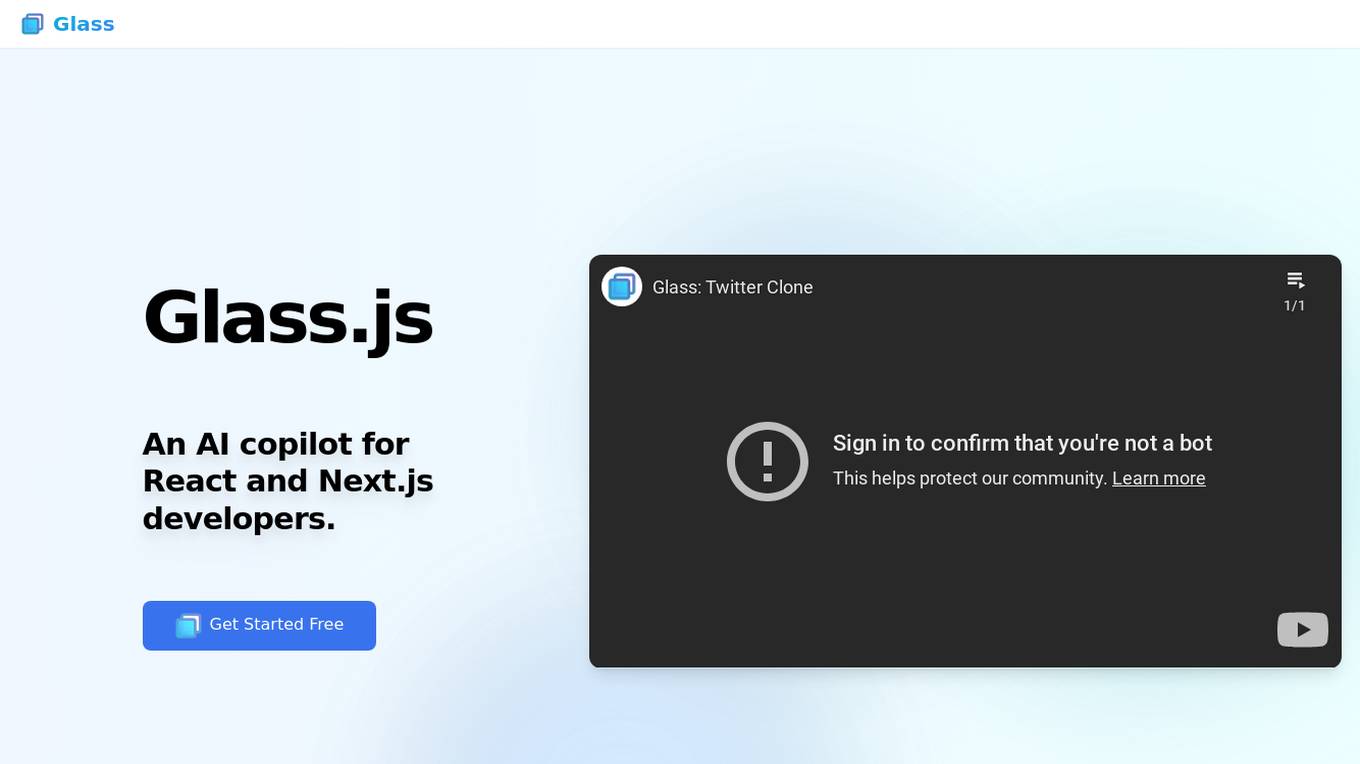
Glass
Glass is an AI copilot designed for React and Next.js developers. It allows users to edit code straight from the browser using AI technology. Glass's AI capabilities include creating components, modifying props, and generating Tailwind CSS. The tool helps developers visualize component structures and easily navigate to source code. Glass is precise and efficient, making React coding faster and more streamlined. It is currently in open beta for startups, with ongoing improvements to its AI functionality.

Alignerr
Alignerr is a platform powered by Labelbox that offers subject matter experts the opportunity to align AI models by creating high-quality data in their field of expertise. The platform aims to build the future of Generative AI by enabling experts to contribute to tasks such as coding improvement, data science synthesis, basic math and chemistry comprehension, and creative writing. Alignerr provides a transparent pay structure and allows individuals to work from home on their own schedule, earning up to $150/hr. Contributors can play a pivotal role in shaping the future of artificial intelligence by working on tasks that involve rating or ranking assignments, open rewrite tasks, and multi-modal assignments. The platform emphasizes the responsible development of AI technologies and offers flexibility for professionals to balance work with personal life effortlessly.
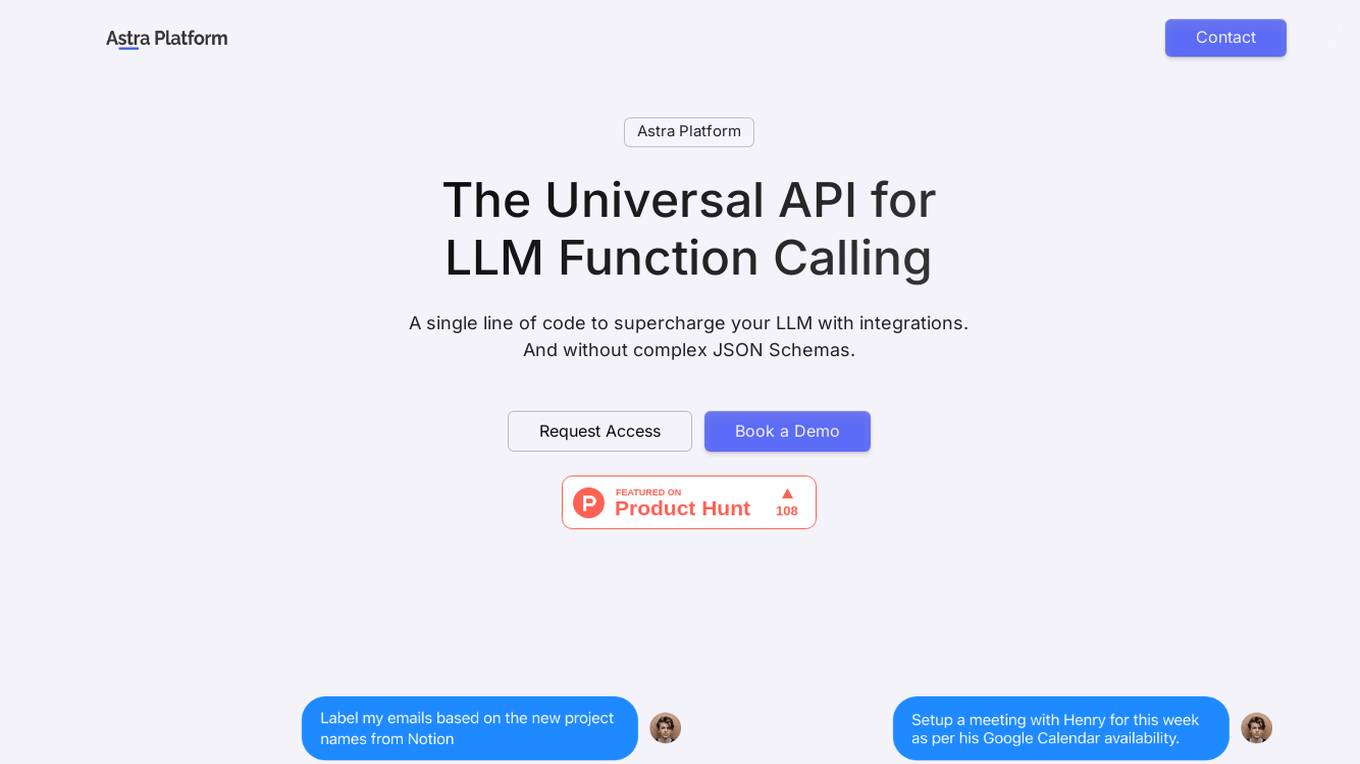
Astra
Astra is a universal API for LLM function calling that supercharges LLMs with integrations using a single line of code. It allows users to conveniently leverage function calling in LLMs with over 2,200 integrations, manage authentication profiles, import tools easily, and enable function calling with any LLM. Astra replaces JSON with a type-safe UI, making integration management simpler. The application extends the capabilities of LLMs without altering their core structure, offering a seamless layer of integrations and function execution.
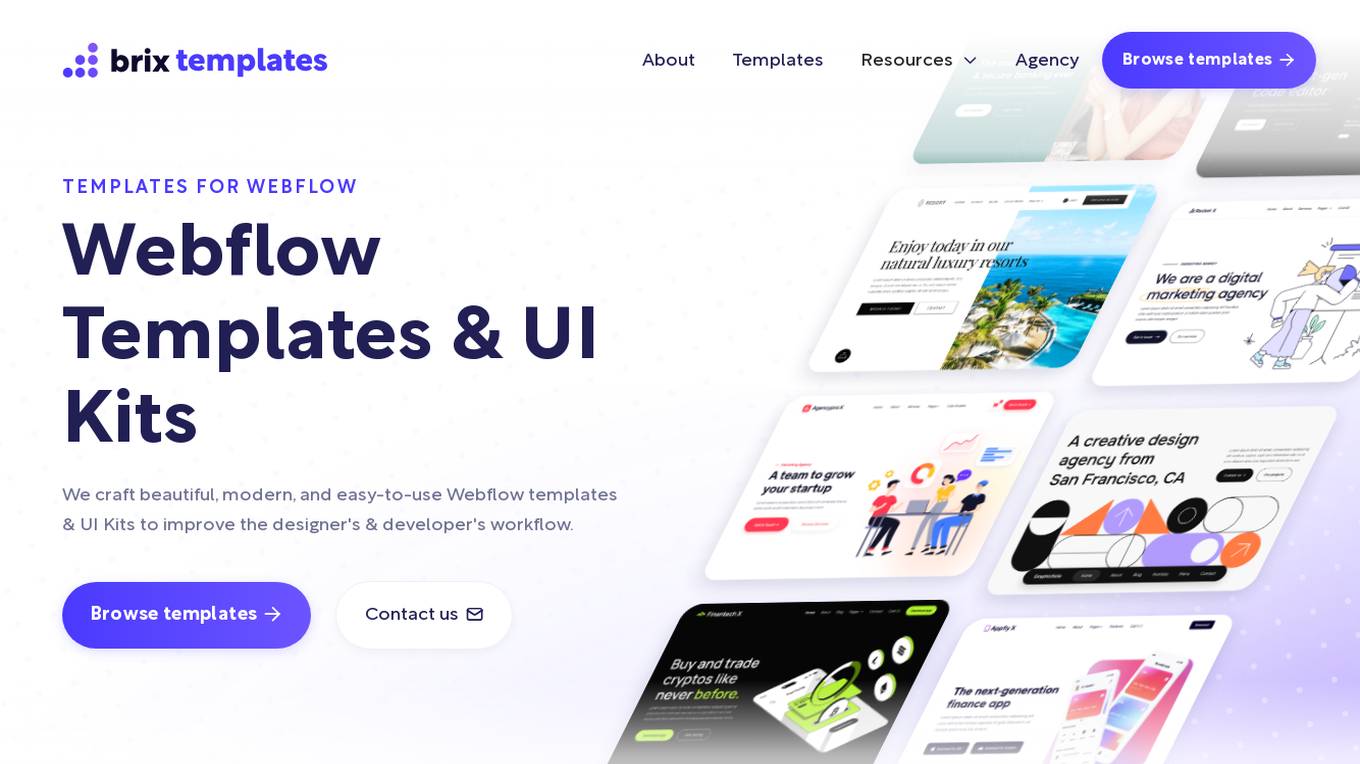
BRIX Templates
BRIX Templates is a website that offers premium Webflow templates and UI kits for designers and developers. The templates are designed to be beautiful, modern, and easy to use, and they come with a variety of features and benefits, including: * Premium design * Built for speed * Perfectly responsive * Flexible design * Seamless animations * 100% customizable * CMS structure * Always up-to-date * Figma file included * Exceptional support BRIX Templates also offers a variety of resources for Webflow users, including articles, tutorials, and cloneables. The company has a team of experienced designers and developers who are passionate about helping others create beautiful and successful websites.
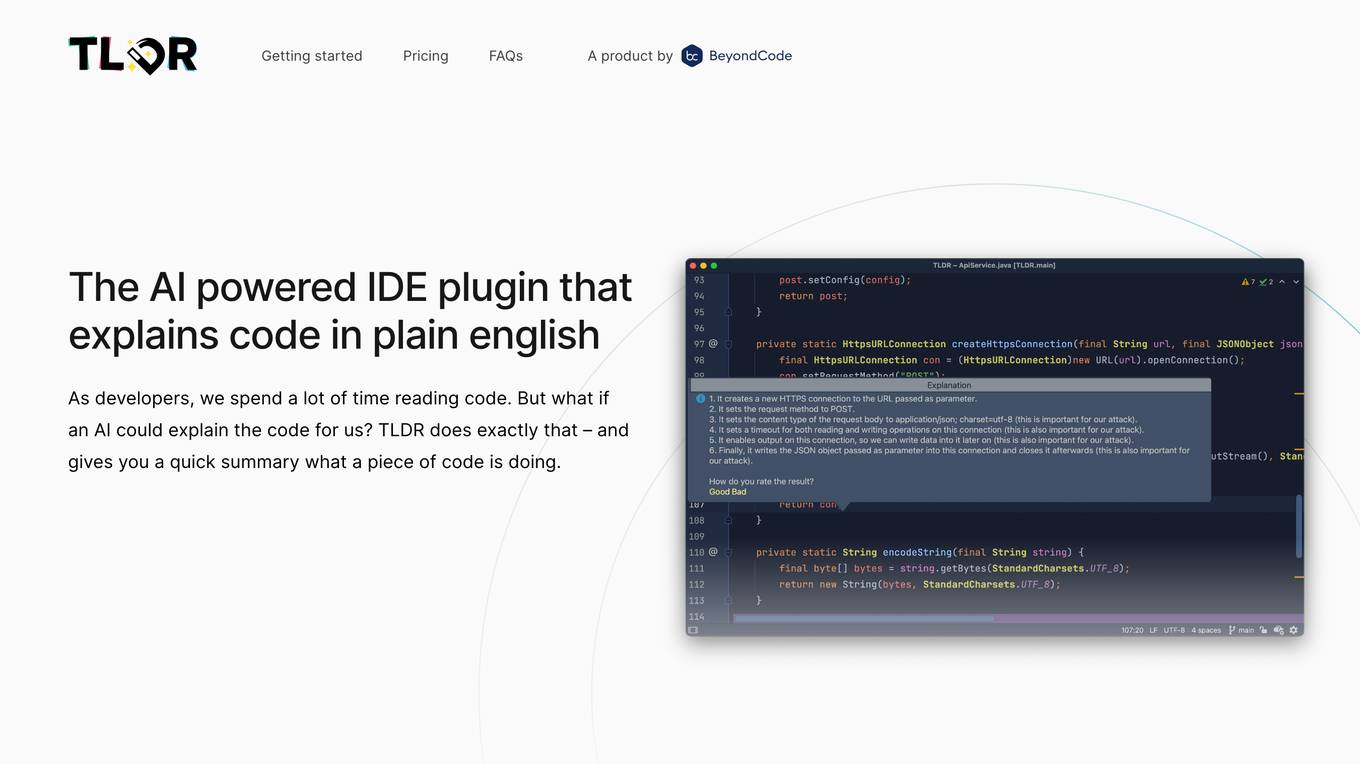
TLDR
TLDR is an AI-powered IDE plugin that explains code in plain English. It helps developers understand code by providing quick summaries of what a piece of code is doing. The tool supports almost all programming languages and offers a free version for users to try before purchasing. TLDR aims to simplify the understanding of complex code structures and save developers time in comprehending codebases.
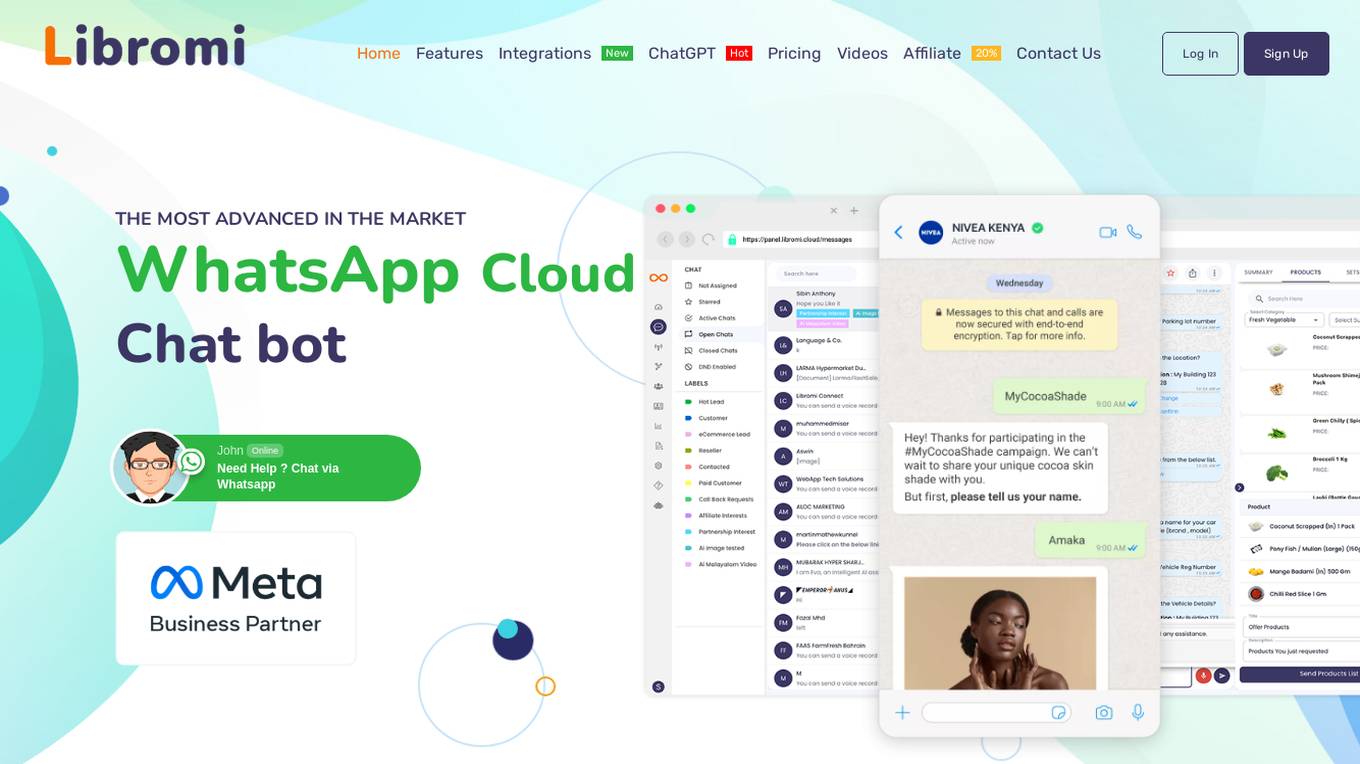
Libromi Connect
Libromi Connect is an AI-powered WhatsApp cloud business platform that offers advanced features to streamline customer engagement and automate interactions. It provides a no-code chatbot builder, native eCommerce integration within WhatsApp, bulk messaging capabilities, and a GPT4 AI chatbot. The platform also includes a team inbox for multi-agent chat support and CRM features for sales and support chat. Libromi Connect aims to revolutionize online shopping and customer service by leveraging the power of AI and WhatsApp's popularity.
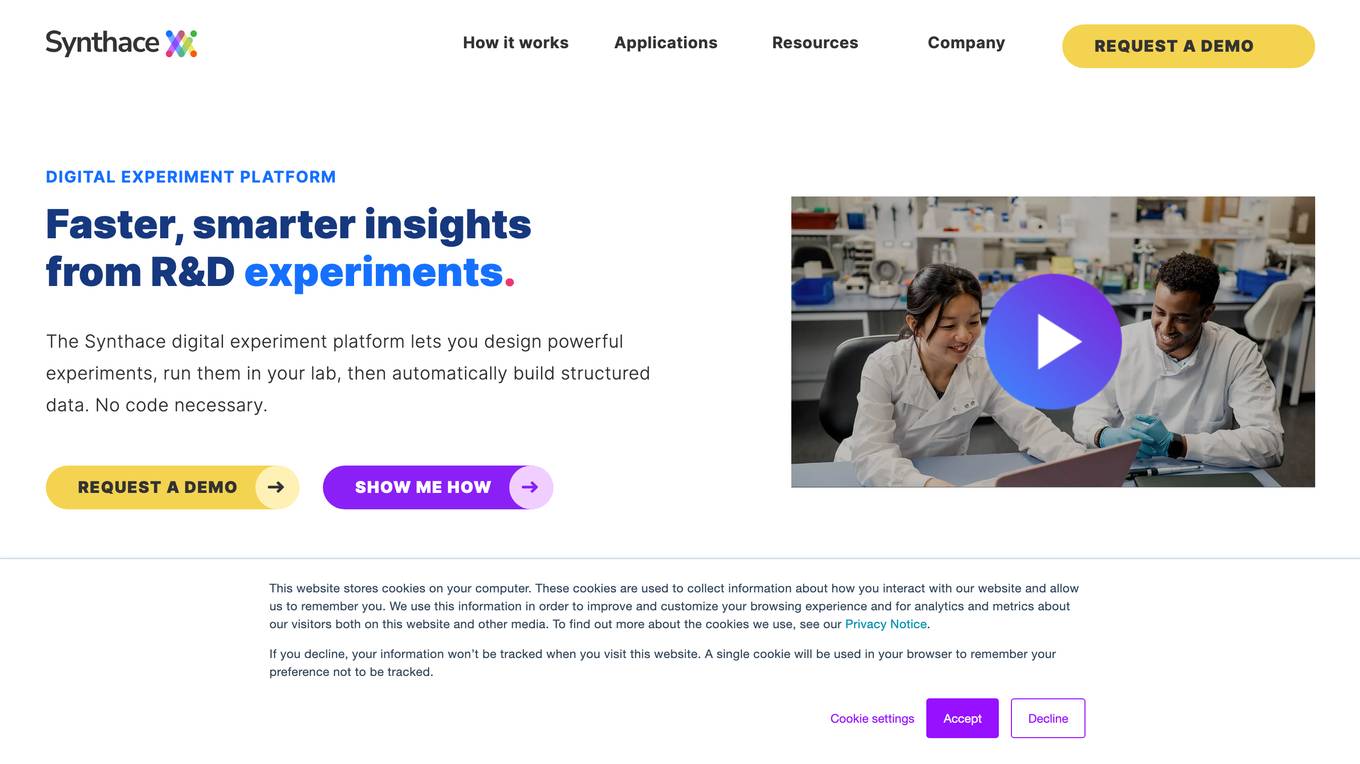
Synthace
Synthace is a software and expertise platform designed for Discovery Biology Teams to streamline and optimize their experiments in assay development, media optimization, and purification process development. The platform offers software solutions, training, and on-site support from specialists to help scientists conduct experiments more efficiently and effectively. By leveraging multifactorial methods and automation, Synthace aims to accelerate drug discovery processes and deliver faster, definitive results.
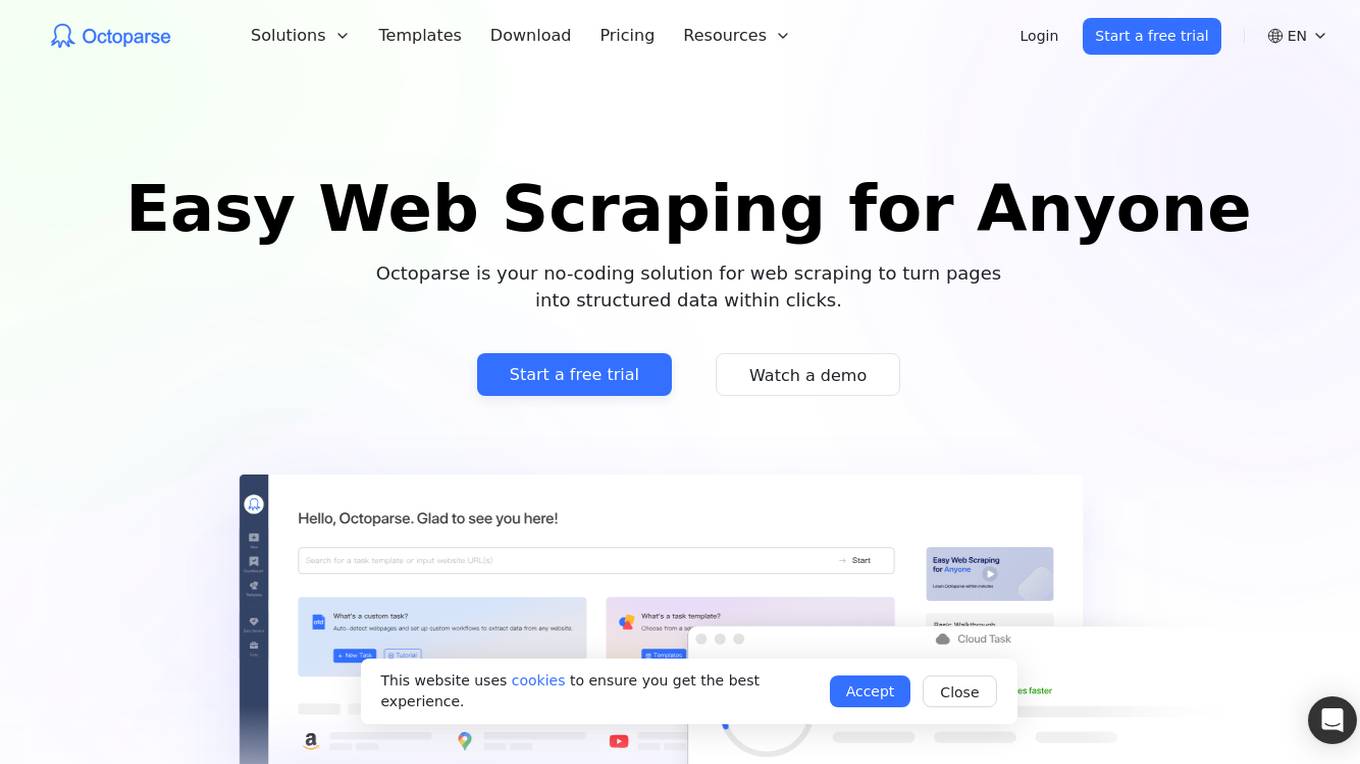
Octoparse
Octoparse is an AI web scraping tool that offers a no-coding solution for turning web pages into structured data with just a few clicks. It provides users with the ability to build reliable web scrapers without any coding knowledge, thanks to its intuitive workflow designer. With features like AI assistance, automation, and template libraries, Octoparse is a powerful tool for data extraction and analysis across various industries.
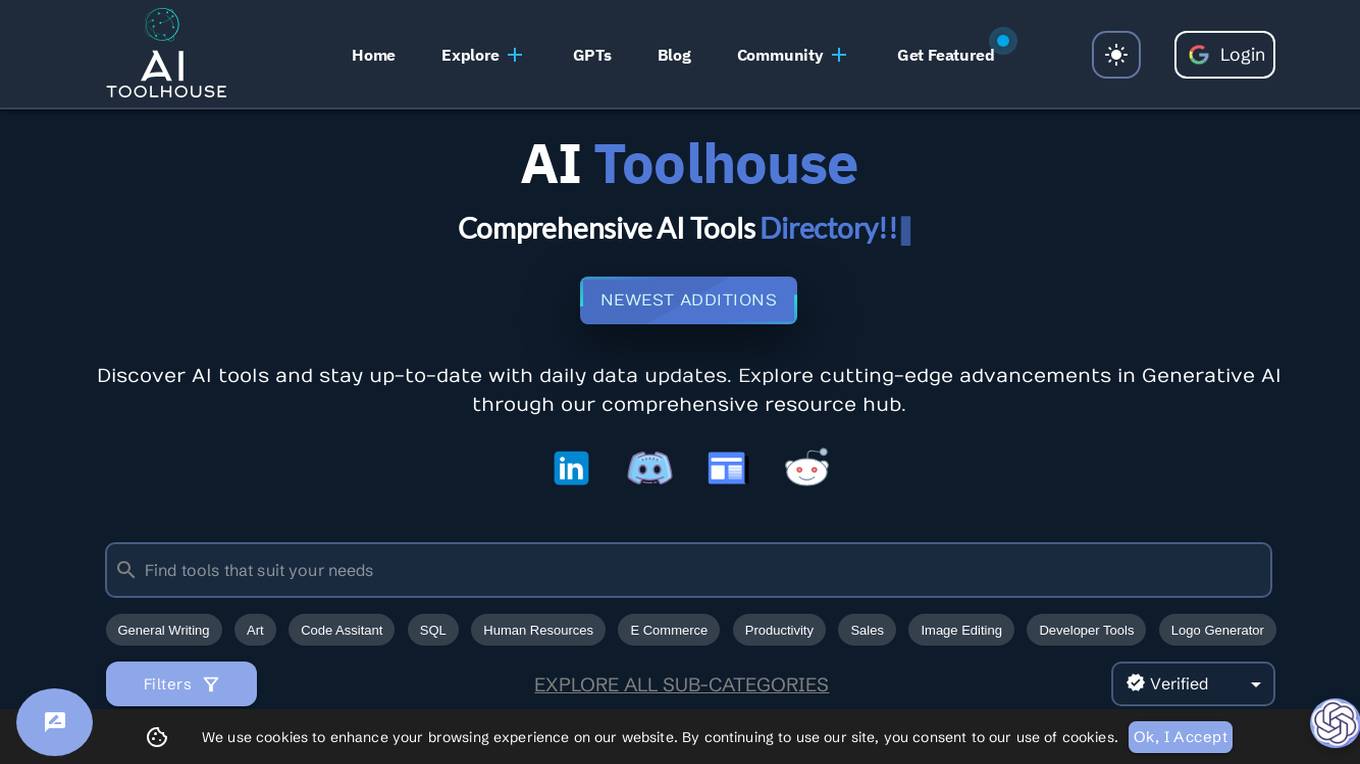
AI Toolhouse
AI Toolhouse is a comprehensive AI tools catalog and directory that allows users to explore various categories of AI tools and Generative AI advancements. Users can discover the newest additions, stay updated with daily data updates, and access cutting-edge resources in areas such as General Writing, Art, Code Assistant, SQL, Human Resources, E-Commerce, Productivity, Sales, Image Editing, and Developer Tools. The platform offers a wide range of verified filters to help users find the most suitable tools for their needs.

DocuPipe
DocuPipe is an AI-powered document extraction tool that helps businesses convert various types of documents into structured data. It uses artificial intelligence to extract information from documents such as invoices, medical records, insurance claims, and more. DocuPipe offers custom definitions tailored for different businesses to accurately extract required data. The tool ensures security and compliance by encrypting documents and being GDPR and HIPAA compliant. With features like OCR, document standardization, and document splitting, DocuPipe provides accuracy, flexibility, and speed in handling documents.
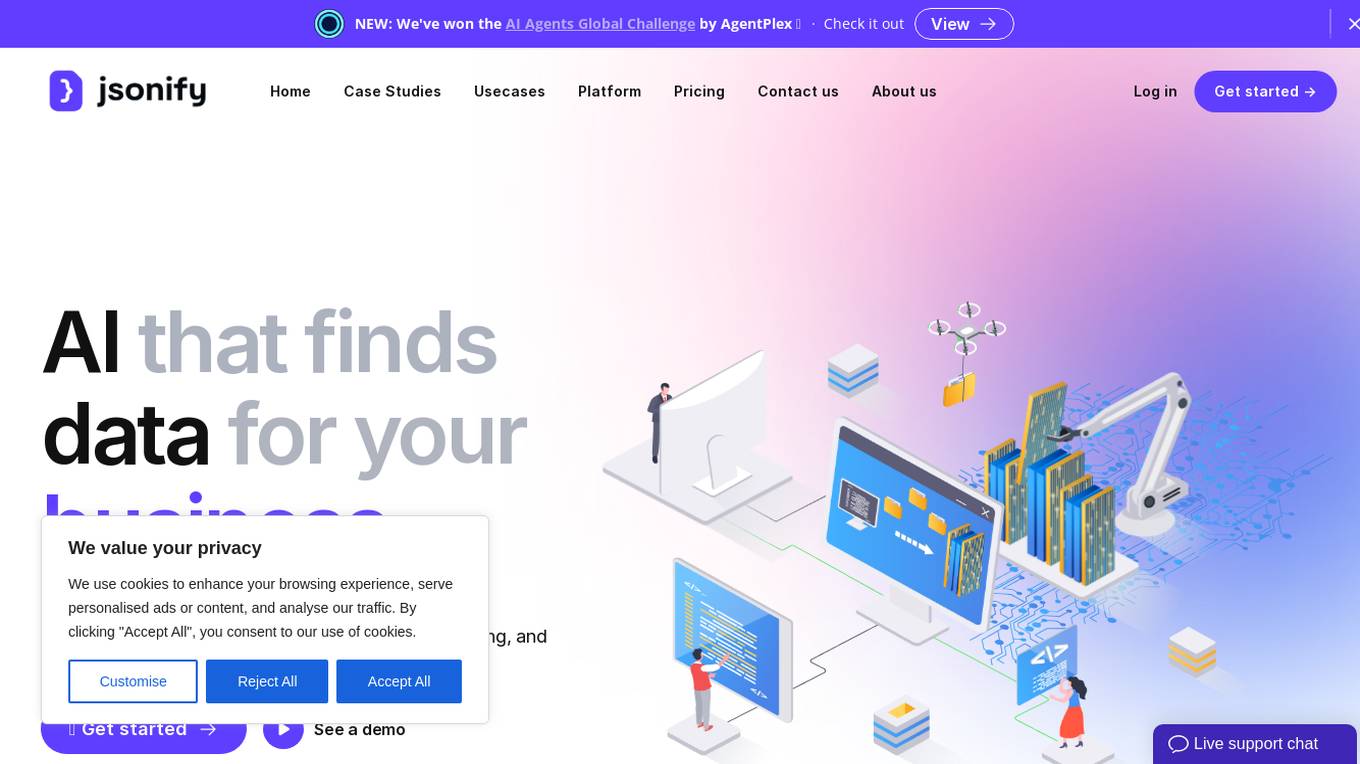
Jsonify
Jsonify is an AI tool that automates the process of exploring and understanding websites to find, filter, and extract structured data at scale. It uses AI-powered agents to navigate web content, replacing traditional data scrapers and providing data insights with speed and precision. Jsonify integrates with leading data analysis and business intelligence suites, allowing users to visualize and gain insights into their data easily. The tool offers a no-code dashboard for creating workflows and easily iterating on data tasks. Jsonify is trusted by companies worldwide for its ability to adapt to page changes, learn as it runs, and provide technical and non-technical integrations.

PatientNotes.ai
PatientNotes.ai is an AI-powered medical scribe application designed to assist healthcare providers in generating accurate clinical documentation efficiently. The application listens to patient encounters, transcribes conversations, and automatically generates structured notes, including SOAP notes, progress notes, and custom formats. PatientNotes.ai aims to streamline the documentation process, saving healthcare professionals valuable time and reducing the burden of manual data entry. The application is HIPAA compliant, ensuring the security and privacy of patient data. With features like customizable templates, ambient AI listening, easy EHR integration, and cross-device synchronization, PatientNotes.ai offers a comprehensive solution for clinical documentation needs.
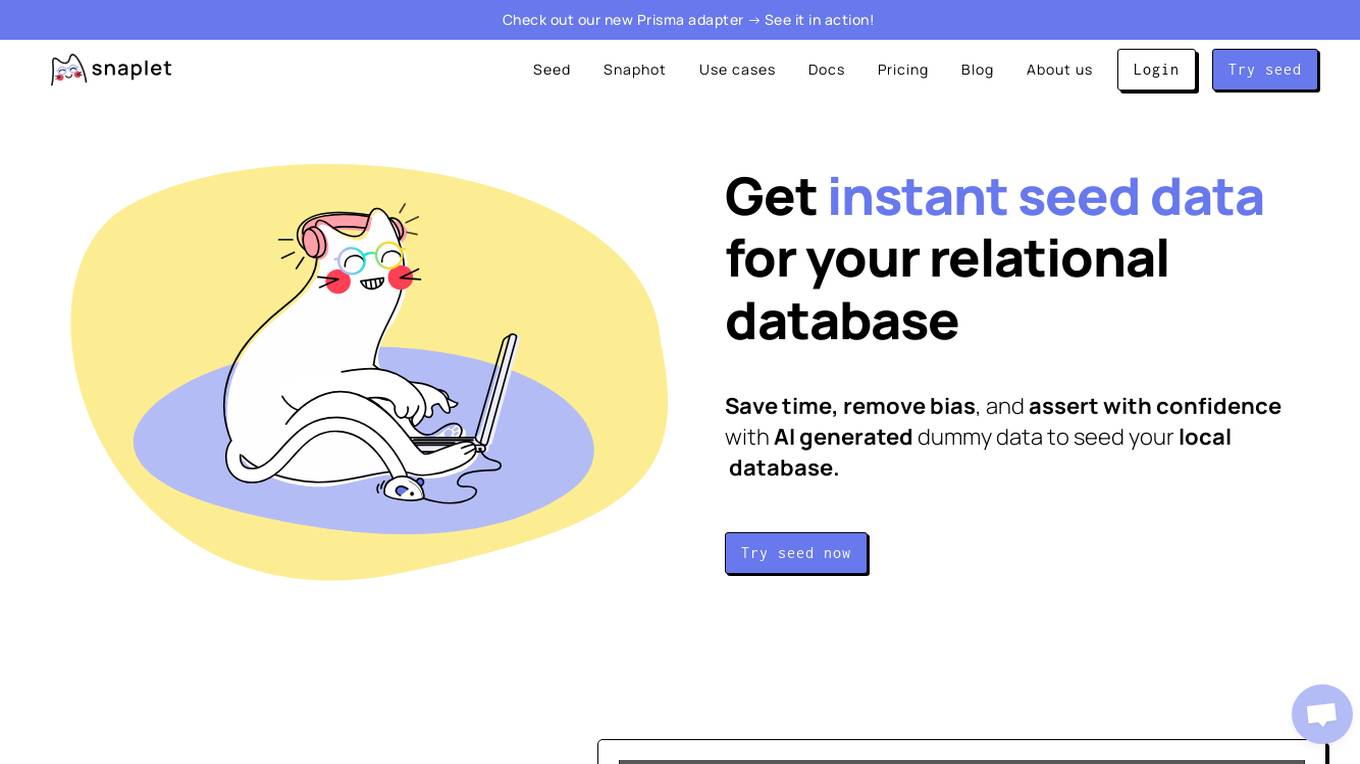
Snaplet
Snaplet is a data management tool for developers that provides AI-generated dummy data for local development, end-to-end testing, and debugging. It uses a real programming language (TypeScript) to define and edit data, ensuring type safety and auto-completion. Snaplet understands database structures and relationships, automatically transforming personally identifiable information and seeding data accordingly. It integrates seamlessly into development workflows, providing data where it's needed most: on local machines, for CI/CD testing, and preview environments.
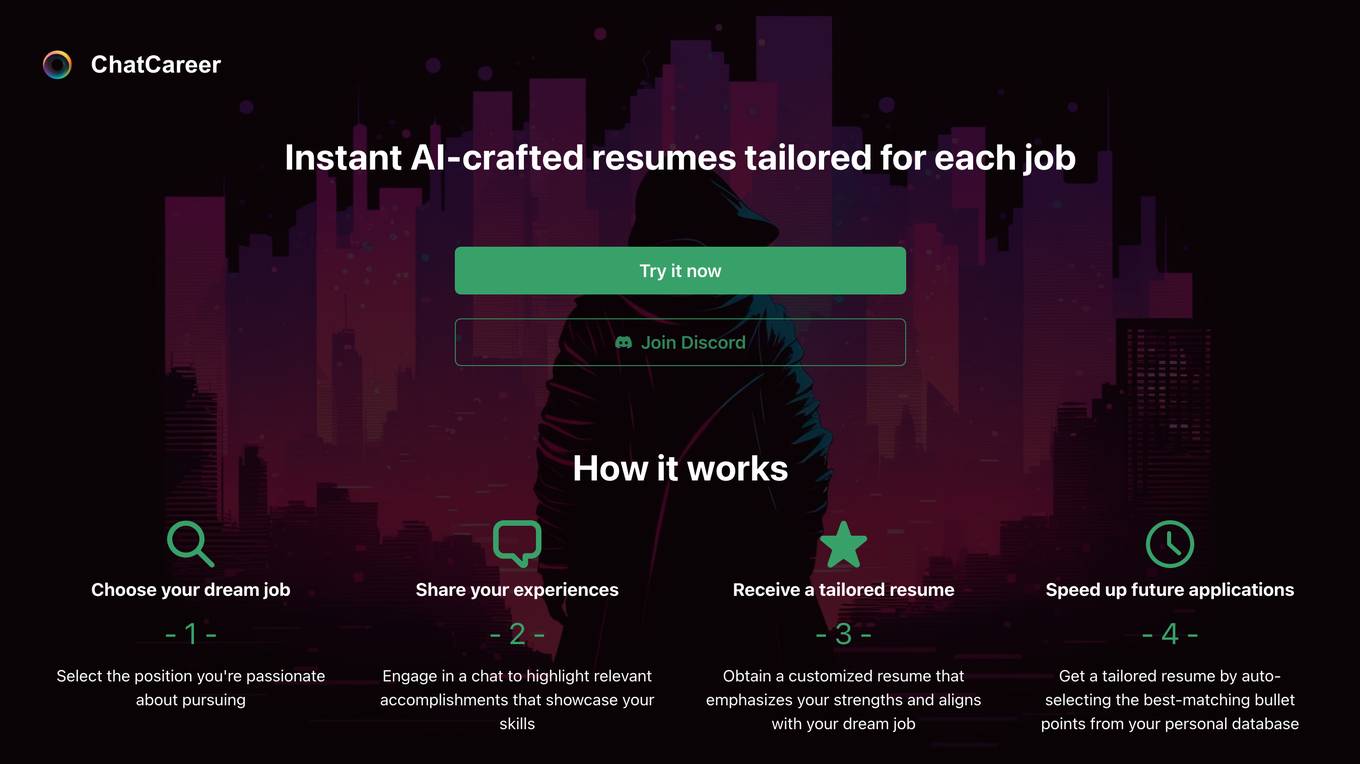
404 Error Page
The website displays a 404 error message indicating that the deployment cannot be found. It provides a code (DEPLOYMENT_NOT_FOUND) and an ID (sin1::7crbp-1720289011850-d12041b250e9) for reference. Users are directed to check the documentation for further information and troubleshooting.
0 - Open Source AI Tools
20 - OpenAI Gpts
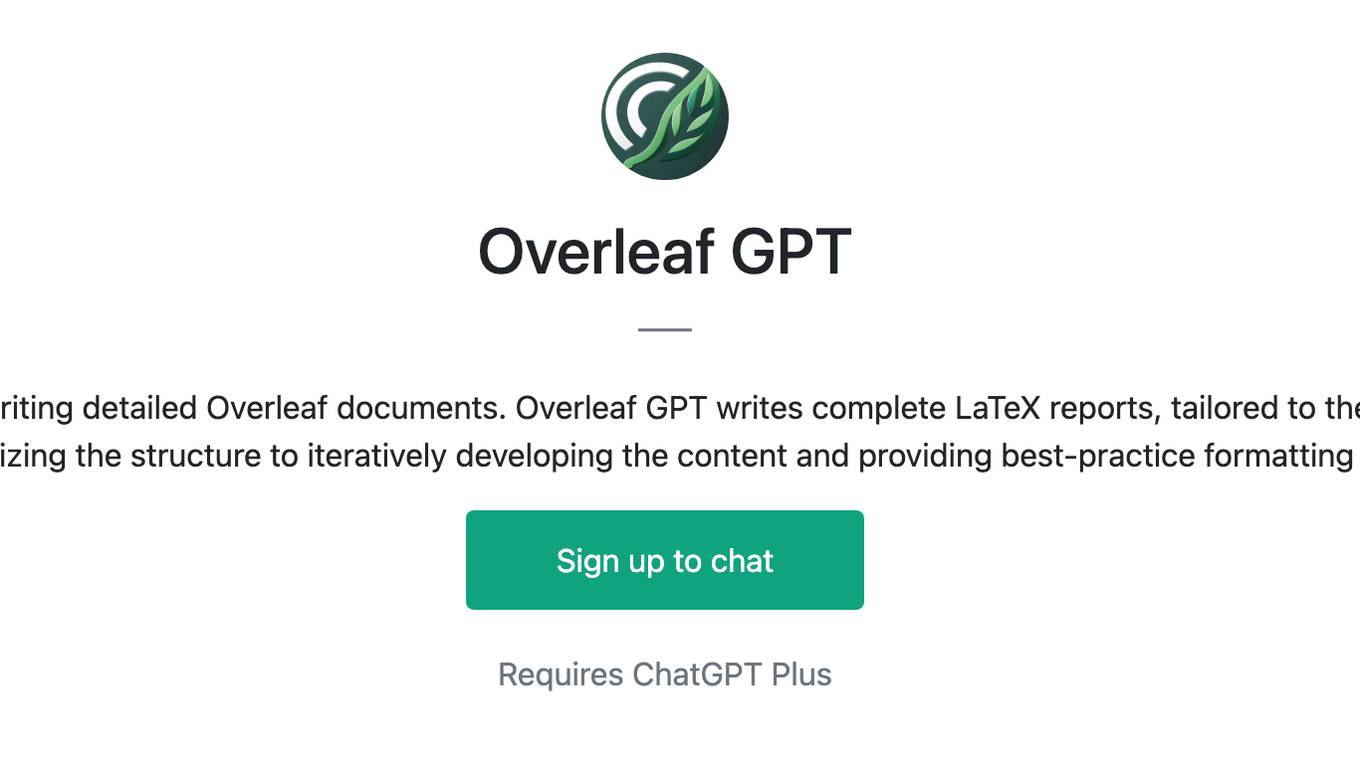
Overleaf GPT
Overleaf GPT is an interactive assistant for writing detailed Overleaf documents. Overleaf GPT writes complete LaTeX reports, tailored to the user’s requirements. This GPT starts with conceptualizing the structure to iteratively developing the content and providing best-practice formatting in LaTeX.
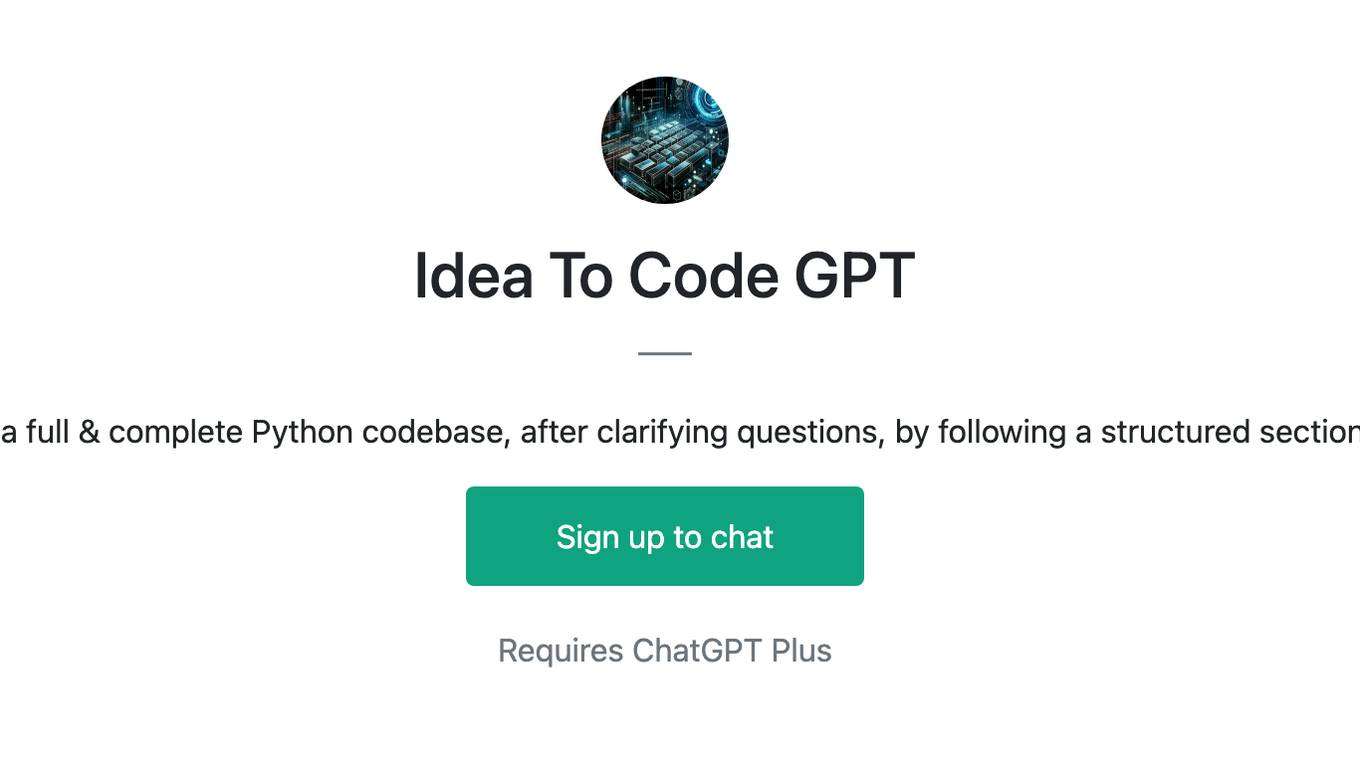
Idea To Code GPT
Generates a full & complete Python codebase, after clarifying questions, by following a structured section pattern.
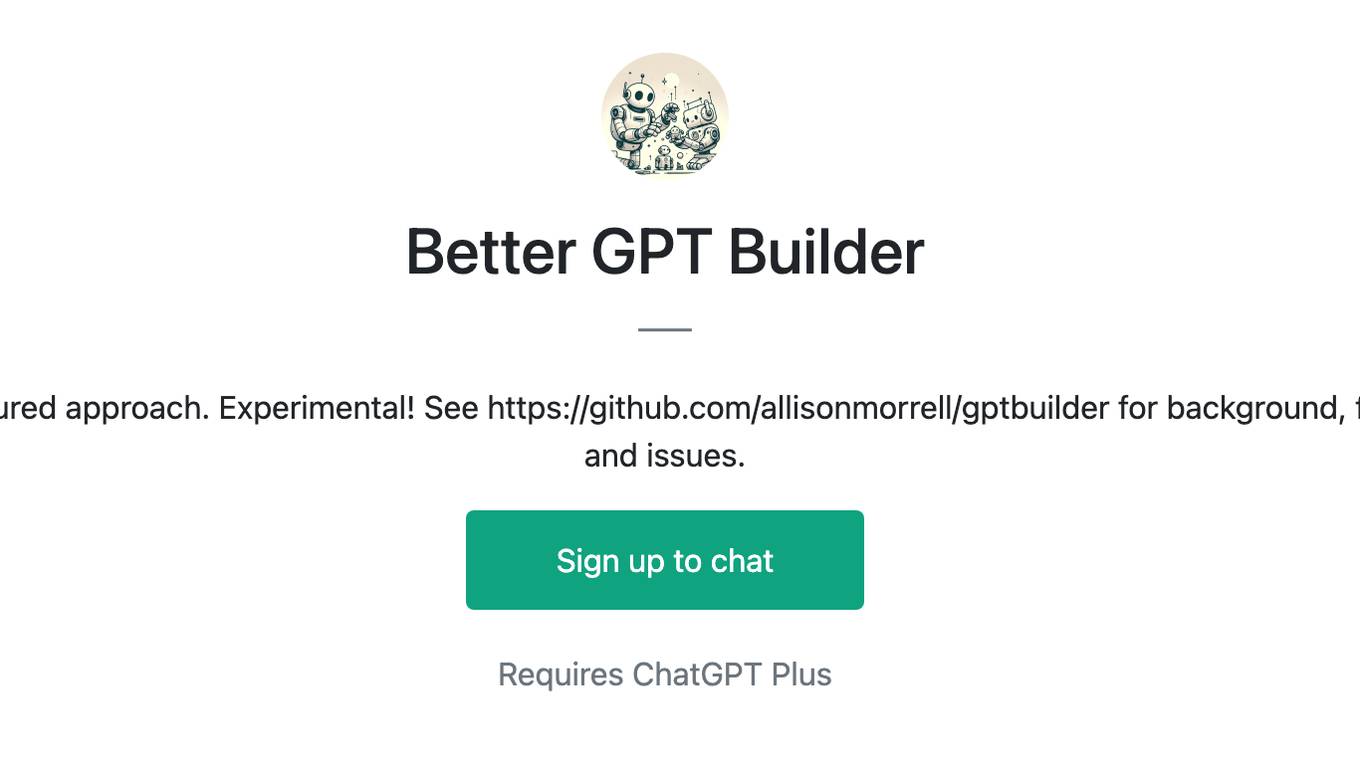
Better GPT Builder
Guides users in creating GPTs with a structured approach. Experimental! See https://github.com/allisonmorrell/gptbuilder for background, full prompts and files, and to submit ideas and issues.
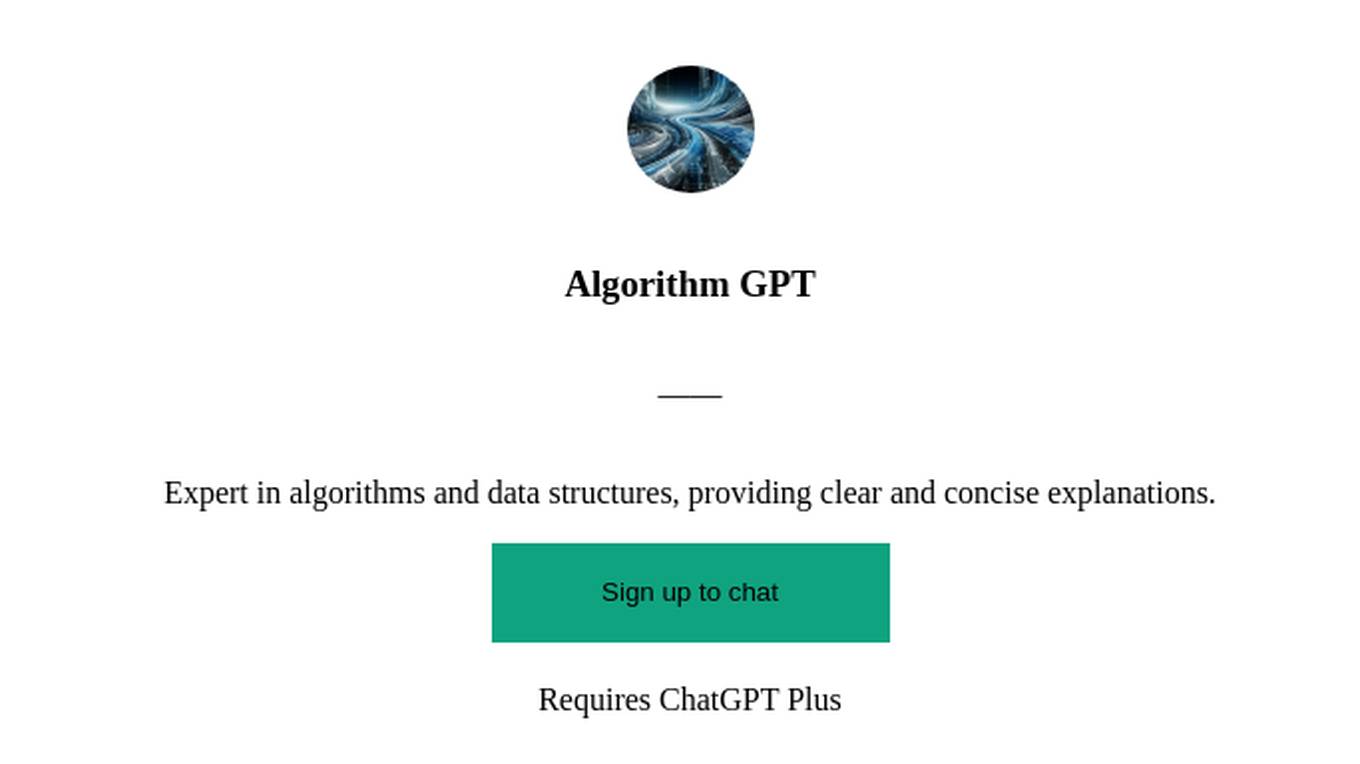
Algorithm GPT
Expert in algorithms and data structures, providing clear and concise explanations.

Aircraft Structure, Rigging, Assemblers Companion
Rough day at work? Stressed out? Or just want to see some funny memes? I got you! Type "help" for More Information

The Riggorous Guide to Structure
Irritating Northern advisor on UK building regs for structure. Based on Oliver Rigg and Approved Document A
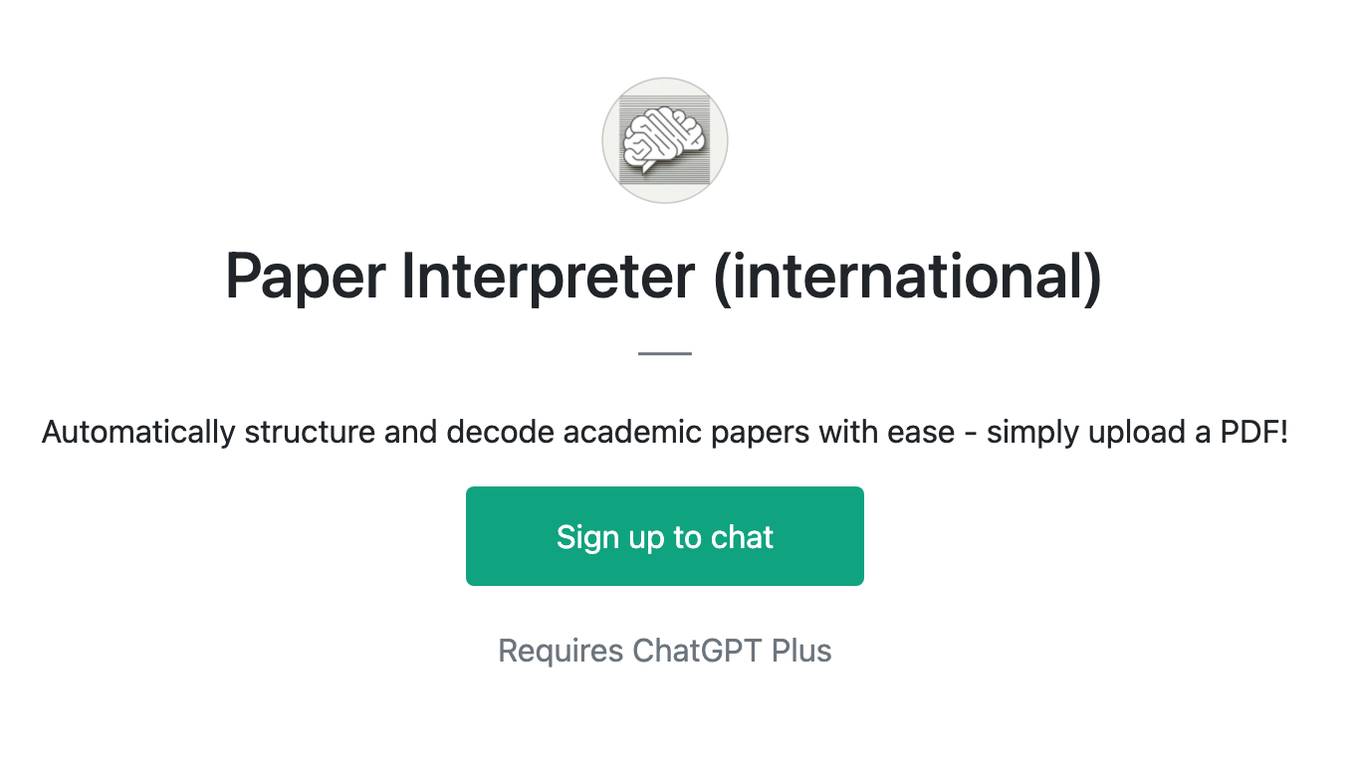
Paper Interpreter (international)
Automatically structure and decode academic papers with ease - simply upload a PDF!
